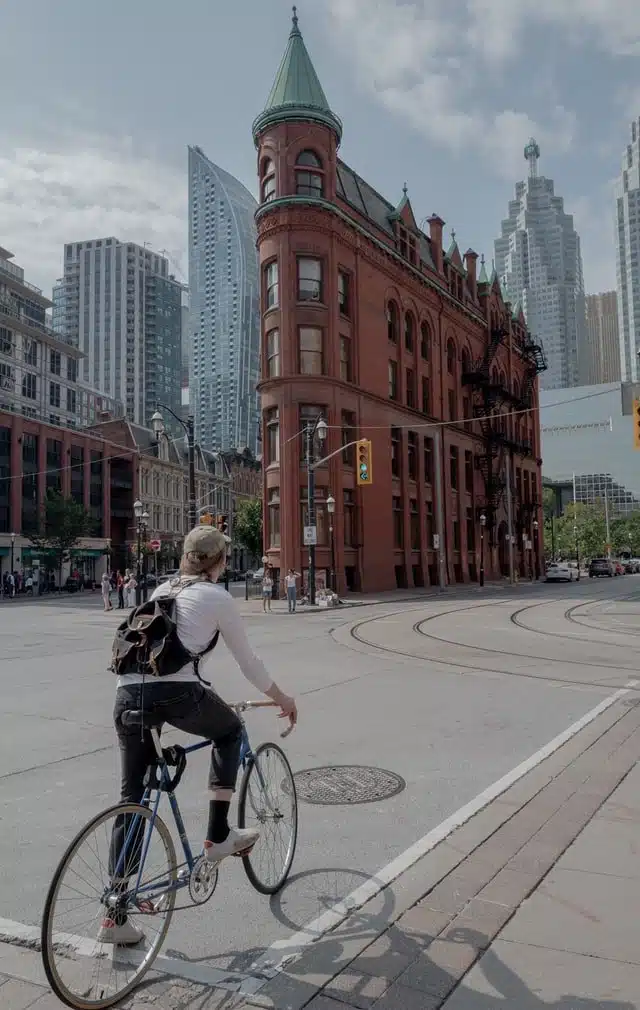In most universities, studying cycling traffic is not a usual course offering for students looking to get into fields like urban planning or civil engineering, but it certainly should be. If we are to seriously plan for cycling-friendly cities in the future, we need to create a direct pipeline between universities and the real world. Bringing new initiatives to life always requires high-level education to light up young minds, and making the switch from cars to bicycles is no different.
In an attempt to bring cycling up to equal footing with other transport means, in 2020, Germany’s Federal Ministry of Transport and Digital Infrastructure (BMVI) began funding seven institutions to appoint professors in the subject. The aim is to give even greater attention to the interests of cyclists in the future – from infrastructure planning to mobility management and cycling-friendly legislation. The universities are funded with a maximum annual amount of 400,000 euros per professorship.
“We want to educate tomorrow’s bright minds who understand how to promote cycling,” said Jana Kühl, Germany’s first female professor of cycling management at Ostfalia University of Applied Sciences. The professorship is based at the Institute for Traffic Management, Salzgitter Campus. “There is a great need in municipalities for personnel who can practically implement cycling promotion,” said Kühl (taz.de, 2020, Interview with Jana Kühl).
At the Frankfurt University of Applied Sciences, Professor Dennis Knese will be integrating cycling study into various other courses of study, such as: civil engineering, urban planning, environmental engineering, business studies and logistics. Knese has been inspired by countries like China and Colombia, and especially the city Bogotá, that have managed to consistently convert infrastructure into mass bike-sharing services in recent years (Tagesspiegel.de, 2021, Interview with Dennis Knese).
“It is time for cycling research to catch up with motorized transport in terms of quantitative, experimentally-based findings,” said Heather Kaths, cycling planning professor at the University of Wuppertal (Westdeutsche Zeitung, de, 2021, “Stiftungsprofessorin erforscht den Radverkehr der Zukunft”). Kaths researches how to incorporate practical experience and experimentally-based findings into the field of cycling mobility.
However, in order to even mobilize minds to enable a societal shift away from motorized vehicles to bicycles requires addressing traffic psychology issues. With the professorship in cycling mobility at the Karlsruhe University of Applied Sciences, Dr. Angela Francke wants to set new priorities in teaching and research on cycling.
“It is important to me to promote sustainable mobility, guided by the question of how the bicycle can become the mode of transport of first choice in interaction with all other road users,” said Francke. “Among other things, we will look at traffic psychology backgrounds, empirical data analyses of mobility behaviour and international cycling solutions. In this context, the transfer into practice and the cooperation with partners in administration, planning and politics will play an important role” (Hochschule Karlsruhe, University of Applied Sciences, 2021, “Stiftungsprofessur für Radverkehr an der Hochschule Karlsruhe wird besetzt“).
This massive step from Germany is important for cities globally because it can set a trend for cycling education that other countries could follow.
“The professorships are a statement about the seriousness of cycling,” said Kühl. “It gives the opportunity to finally treat cycling seriously in teaching and research and no longer as a marginal topic” (taz.de, 2020, Interview with Jana Kühl).
References
taz.de (2020), Interview with Jana Kühl: Wir sind aufs Auto sozialisiert“, URL: https://taz.de/Professorin-Jana-Kuehl-ueber-Radverkehr/!5722886/ (Accessed: 23 April, 2021).
Tagesspiegel.de (2021), Interview with Dennis Knese, URL: https://background.tagesspiegel.de/mobilitaet/dennis-knese (Accessed: 24 April, 2021).
Westdeutsche Zeitung, de, (2021), “Stiftungsprofessorin erforscht den Radverkehr der Zukunft”, URL: https://www.wz.de/nrw/stiftungsprofessorin-erforscht-den-radverkehr-der-zukunft_aid-57264545 (Accessed: 24 April 2021).
Hochschule Karlsruhe University of Applied Sciences (2021), “Stiftungsprofessur für Radverkehr an der Hochschule Karlsruhe wird besetzt“, URL: https://www.h-ka.de/die-hochschule-karlsruhe/aktuelles/news/2021/stiftungsprofessur-radverkehr (Accessed: 23 Apri 2021).
Federal Ministry of Transport and Digital Infrastructure (2020), First-time funding provided by BMVI for university chairs on cycling, URL: https://www.bmvi.de/SharedDocs/EN/PressRelease/2020/005-we-are-gearing-up-to-support-cyclists.html (Accessed: 23 April, 2021).
Ostfalia Hochschule für angewandte Wissenschaften (2020), Radverkehrsmanagement, URL: https://www.ostfalia.de/cms/de/ifvm/radverkehrsmanagement/ (Accessed: 23 April, 2021).
Frankfurt University of Applied Sciences (2020), Lehre Radverkehr an der Frankfurt UAS, URL: https://www.frankfurt-university.de/de/hochschule/fachbereich-1-architektur-bauingenieurwesen-geomatik/forschungsinstitut-ffin/fachgruppen-des-ffin/fachgruppe-neue-mobilitat/lehre-radverkehr/ (Accessed: 23 April, 2021).
Bergische Universität Wuppertal (2021), Stiftungsprofessorin erforscht Radverkehr der Zukunft, URL: https://www.archbau.uni-wuppertal.de/de/aktuell.html (Accessed: 23 April, 2021).
Hochschule Karlsruhe, University of Applied Sciences (2020), Stiftungsprofessur für Radverkehr, URL: https://www.h-ka.de/die-hochschule-karlsruhe/aktuelles/news/2021/stiftungsprofessur-radverkehr (Accessed: 23 April, 2021).
